Elle Style Award Winners 2015
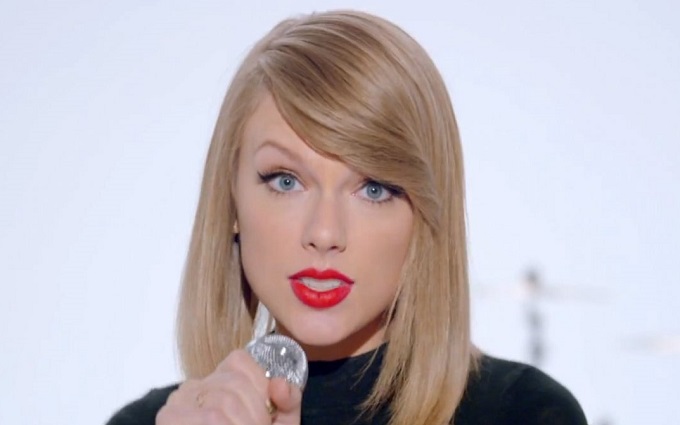
Guests including Taylor Swift, Sam Smith, Simon Cowell, Cara Delevingne, Diane Kruger, Christopher Bailey, David Gandy, Lewis Hamilton and Manolo Blahnik arrived at London’s newly opened Sky Garden in the Walkie Talkie building at 20 Fenchurch St. tonight for the 18th annual ELLE Style Awards.
The ELLE Style Awards celebrates the world’s most stylish stars, the brightest emerging talent and fashion’s greatest achievers. Radio 1 DJ Nick Grimshaw, hosted the awards, which brought to life the elegance of luxe nightclubbing. Guests enjoyed sets by DJ Severino of Horsemeat Disco and Mary Charteris. Check out full list of this year’s winners and VIP presenters below.
2015 winners:
Editor’s Choice: Christopher Bailey (presented by Lorraine Candy, ELLE UK’s Editor-in-Chief)
Emerging Designer: Ashley Williams (presented by Pixie Geldof)
Musician of the Year: Sam Smith (presented by Jourdan Dunn)
Contemporary Brand: MARC by Marc Jacobs Katie Hillier and Luella Bartley (presented by M.I.A.)
Model of the Year: Rosie Huntington-Whiteley (presented by Calvin Harris)
TV Actress: Maggie Gyllenhaal (presented by Gwendoline Christie)
H&M Conscious Award: Lily Cole (presented by Olivia Wilde)
Rising Star: Rebel Wilson (presented by Jennifer Saunders)
Accessories Designer: Stuart Vevers by Coach (presented by Jessie Ware)
Lifetime Achievement Award: Manolo Blahnik (presented by Naomi Campbell)
Actor of the Year: Luke Evans (presented by Ellie Goulding)
Breakthrough Actress: Cara Delevingne (presented by Michael Winterbottom)
Red Carpet Designer: Mary Katrantzou (presented by Leigh Lezark)
Film Actress: Diane Kruger (presented by Bryan Cranston)
Designer of the Year: Erdem (presented by Alexa Chung)
Outstanding Contribution to Entertainment: Simon Cowell (presented by Lorraine Candy)
Woman of the Year: Taylor Swift (presented by Sam Smith)
Taken Director Open To Taken 4 Return
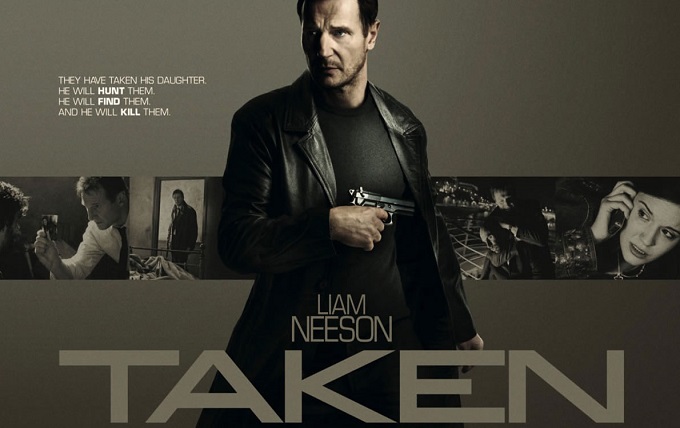
Speaking to Red Carpet News at the world premiere of his latest action film The Gunman, Pierre Morel the director of Taken admitted that he would love to work with Liam Neeson again and would be open to reuniting for Taken 4 if the franchise does indeed continue. Action star Neeson has already confirmed that he’s very happy to continue the franchise as long as audiences want to see him mercilessly dispatching bad guys with his bare hands.
Morel was the director of the first Taken film, which launched the franchise and gave Neeson his unlikely reinvention from respected character actor to leading action superstar. Though Oliver Megaton has directed both Taken sequels with considerable box office success, in truth they’ve never quite matched the blistering brutal action of the first film. No doubt fans would be delighted to see Morel return to the franchise and help steer Neeson toward even greater feats of action in another sequel.
Watch the full video interview below:
Empire Awards 2015 Nominations
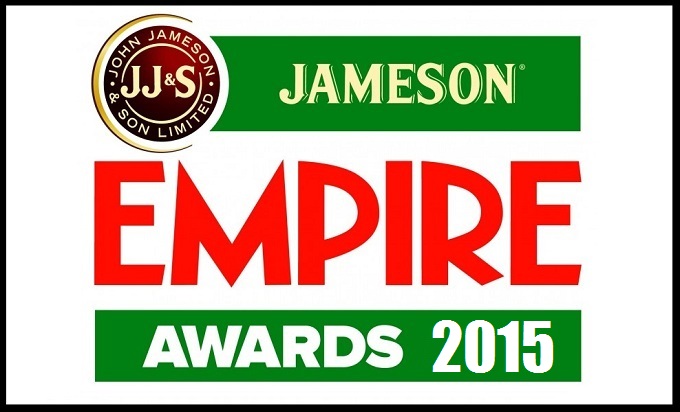
The Empire Awards nominations have been announced for the annual celebration hosted by the UK’s leading film magazine. This year World War Two thriller The Imitation Game starring Benedict Cuberbatch leads the field with six nominations. Kingsman: Secret Service, Dawn of The Planet of The Apes and The Hobbit Battle of The Five Armies were among other films receiving numerous nominations across may competitive categories. Full list of this year’s 2015 nominations below, with winners to be announced at the tar studded London ceremony on 29th March.
Best Newcomer – Male
•Ellar Coltrane (Boyhood)
•Taron Egerton (Kingsman: The Secret Service)
•Daniel Huttlestone (Into The Woods)
•Jack O’Connell (Unbroken)
•Dan Stevens (The Guest)
Best Newcomer – Female
•Sophie Cookson (Kingsman: The Secret Service)
•Carrie Coon (Gone Girl)
•Essie Davis (The Babadook)
•Karen Gillan (Guardians Of The Galaxy/Oculus)
•Gugu Mbatha-Raw (Belle)
Best Sci-Fi/Fantasy
•Dawn Of The Planet Of The Apes
•Guardians Of The Galaxy
•The Hobbit: The Battle Of The Five Armies
•Interstellar
•X-Men: Days Of Future Past
Best Horror
•Annabelle
•The Babadook
•The Guest
•Oculus
•Under The Skin
Best Comedy
•22 Jump Street
•The Grand Budapest Hotel
•The Inbetweeners 2
•The Lego Movie
•Paddington
Best Thriller
•Captain America: The Winter Soldier
•Gone Girl
•The Imitation Game
•Kingsman: The Secret Service
•Locke
Best British Film
•The Imitation Game
•Kingsman: The Secret Service
•Paddington
•The Theory Of Everything
•Under The Skin
Best Actor
•Richard Armitage (The Hobbit: The Battle Of The Five Armies)
•Bradley Cooper (American Sniper)
•Benedict Cumberbatch (The Imitation Game)
•Eddie Redmayne (The Theory Of Everything)
•Andy Serkis (Dawn Of The Planet Of The Apes)
Best Actress
•Emily Blunt (Edge Of Tomorrow)
•Felicity Jones (The Theory Of Everything)
•Keira Knightley (The Imitation Game)
•Rosamund Pike (Gone Girl)
•Alicia Vikander (Ex Machina)
Best Director
•Peter Jackson (The Hobbit: The Battle Of The Five Armies)
•Richard Linklater (Boyhood)
•Christopher Nolan (Interstellar)
•Matt Reeves (Dawn Of The Planet Of The Apes)
•Morten Tyldum (The Imitation Game)
Best Film
•Boyhood
•Dawn Of The Planet Of The Apes
•The Hobbit: The Battle Of The Five Armies
•The Imitation Game
•Interstellar
Banana Finale Russell T. Davies Interview
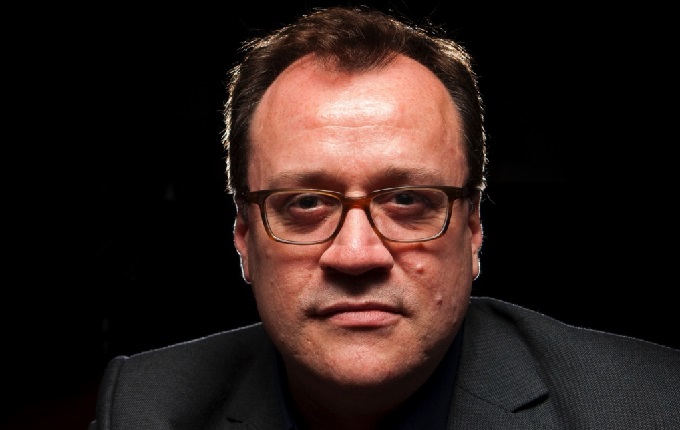
Russell T Davies and Lynn Hunter discuss the finale of Banana ahead of it airing on 12th March, 10pm, E4.
Russell T Davies:
It’s a two-hander, but it’s not a normal one, is it?
No, it’s not. I like Banana to change and to keep people on their toes and surprise people. And E4 is all about risk – and Banana takes all sorts of risks. Every episode is different – there’s drama, tragedy, romantic comedy, and then this.
This being a two-hander where one of the characters basically doesn’t speak English!
Yes, that’s right. Pretty much every word uttered by Zara is in Yoruba [a Nigerian dialect]. She’s not understood, which isn’t unusual for her, because she’s never understood or listened to. She just comes in and cleans and goes away again, unnoticed. She’s part of the underclass that exists, however much we might not like to think about it. I liked the fact that the last episode of Banana, after all of the dramas about the gays and their lives and loves and disappointments, was about the women who clean for them. It got us wondering, on the set, who cleans up after us?
Did you spend as long on Zara’s dialogue as on Vanessa’s?
Yes, I did, actually. I wrote the script, and then it was translated into Yoruba. And we thought about whether to have an English translation of the script on set, and decided not to. But for the extremely small minority of viewers who can speak Yoruba, there are lots of jokes in there, because Vanessa’s opening up about her life and her lesbian relationships, and thinks they’re becoming friends, and Zara is actually disgusted by what she’s hearing and really doesn’t approve of it.
For the viewer, in effect, Vanessa’s just delivering a whole series of soliloquys, isn’t she?
Yes, it becomes almost a monologue, even though the person who’s crying out for attention is sitting there – which is very true of life, I think. I actually created Vanessa for Lynn [Hunter], because I’d worked with her before, and loved her. She was in a supporting role when I worked with her on an ITV drama called Mine, All Mine. I was always thinking Cucumber was lacking something, and about two years ago I was in a Cardiff café one Sunday morning, and Lynn walked in and I just went “That’s it! That’s the woman! That’s her!” And I went and wrote the part for her. And it’s the first time, in all her acting life, that she’s had a big, strong, leading role in something, and I think she’s magnificent. And I love the fact that Channel 4 is so bold. E4 is meant to be a youth channel, and Zara is young, but Vanessa – well, Lynn would happily tell you herself, she’s 62 years old. And there she is, being absolutely magnificent in this lead role. I love this episode, I think it’s a mad, strange episode, and I’m very proud of it.
Lynn Hunter:
How did you end up landing the role of Vanessa? Had you worked with Russell before?
Yes. I did a series ten years ago of Russell’s called Mine, All Mine. It was about Swansea, really, which is where Russell’s from. It was an eight or ten part series, and I met him then, and we became friends, in a way. And when I went up for the part of Vanessa in Banana and Cucumber, I went to meet the director, David, and the producer, Matt, and I spoke to Russell afterwards and he said that he’d actually written episode 8 of Banana for me. I was incredibly moved by that, really – it’s a massive, massive honour and privilege to have someone like Russell actually writing an episode for me. I was blown away by that. I didn’t know any of this when I went up for it, but I found out afterwards.
Explain a little bit about Vanessa. What’s her story?
On the surface of it she’s a really tough cookie. She’s worked hard, she’s built up her own business, she’s brought up a daughter on her own. She’s always known she’s gay, she had her daughter knowing that. But while she’s a tough cookie on the face of it, she’s a real salt-of-the-earth woman. If Vanessa was your mate, you’d be well-covered. She’s really there for you if she’s your friend. That’s why she can’t turn her back on people who need her help, as we discover in her episode. She’s very much a woman who wants to make people’s lives better. She’s an incredibly caring woman. And she’s also got a secret that’s been eating away at her for many years. And she only tells the girl in the episode because she knows she can’t understand a word of what she’s saying. Vanessa lifts the lid and it all comes pouring out, years and years of this guilt that she’s lived with.
You mentioned that the other character in the episode doesn’t speak English. That must have been quite a bizarre acting experience.
Yes, it was. Strangely enough, I made a conscious decision not to find out what it was she was saying. They offered me the chance to have a translation of her script, and I said “No, I don’t.” Vanessa doesn’t understand what she’s saying, so it was good for me to be in the same situation. I had no idea what she was saying. That made it really difficult to learn cues, for example. But it was really helpful not to have the translation. Apparently some of what she is saying makes the scene very funny, because I totally misinterpret what she says. Apparently it’ll be a very funny scene for the tiny minority of people who speak both English and Yoruba. To this day I’ve not read the translation, so I’ve no idea what she said.
How does it feel to have someone like Russell come along and write a whole episode for you? Where does that stand, for you, in the grand scheme of your career?
In the 35 years of my career, no-one has ever invested that amount of faith in me, as a performer. I am totally overwhelmed and humbled by that. I don’t have the words to say to Russell what this means to me. I’ve tried to tell him. When I got the script originally, I could not believe it. It’s virtually a monologue. I’ve done a lot of television in my time, but never anything as big as this. Even in the big series’, the very well-known actors rarely get that amount of exposure or airtime. When I got the script, it was totally terrifying. With that level of faith invested in me comes a level of responsibility.
Banana Writer & Dino Fetscher Interview
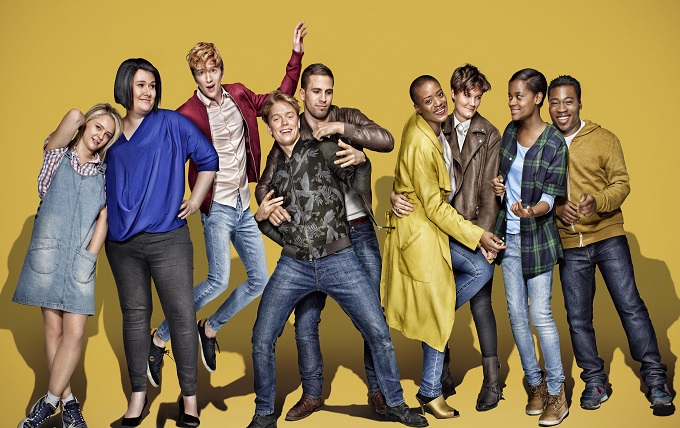
Writer, Lee Warburton, and actor, Dino Fetscher, discuss Queer as Folk and the importance of physical appearance ahead of the seventh episode of Banana airing on 5th March, 10pm, E4.
Where did the inspiration for this episode of Banana come from?
Lee: It is actually based on a true story of a past I no longer live. It was about the next day after a wild night when I found myself with someone I wouldn’t normally find myself with – and trying to ditch them. Through the course of that day, I started to find out about the person, and fall for them. It’s about the idea that we can lock ourselves into certain perceptions that can then be challenged. We all stay in our different cliques, not just in the gay scene, but in general. When you are forced to be with someone, it can change your expectations. That was kind of the starting point for the episode.
And Dino have you had any similar sort of personal experiences?
Dino: No, I don’t think I have ever found myself in a situation particular to our episode, but what is great about the episode is the themes that it explores are so relatable. Everyone has felt rejection and the fear of jumping in – the fear of getting hurt.
How has it been working with Russell T Davies on the creative side of the series?
Lee: I was in Queer as Folk, and worked with Nicola [Shindler] and Russell all those years ago on a small part, and I did all the sex sounds – that’s my claim to fame! [Laughs]. Ever since that point I just wanted to work with Nicola and Russell again. I’m quite a new writer and he’s just incredible – as generous as he is, Russell is also challenging and scary because he’s the best. It’s an absolute dream come true and I bet everyone says that! It’s like walking into a top hairdresser and going, do what you want…
Tell me about your experience on set, Dino…
Dino: It’s my first big TV role after graduating from drama school last year so I was absolutely thrilled to get the opportunity to work with Russell. From the first read-through and meeting with everyone, I had an immediate sense of this is going to be good. There was a sense of family too. In our episode there are lots of scenes that are pretty naked [Laughs]. When we started filming, it was a lot less scary than I thought. We had Emily Feller (Producer) and Luke Snellin (Director) who were just so amazing – and I was able to put all my trust in them. Doing the sex scenes, I felt like I was in really safe hands and it was fun – but it’s not sexy at all! It’s really technical but choreographed in a way that it looks really alive. It was a really great experience. I feel I have been lucky to have been able to work on this on my first job.
Do you think that the importance placed on appearance is particular to the gay community or is across the board?
Dino: I think it’s totally universal. It’s naive to say it’s not important. Of course, a sense of humour and personality adds to that as an element of attraction. I do think the gay community puts a massive emphasis on body and appearance – too much, I think. But there is a lot of truth in Lee’s writing that without an element of physical attraction it can’t work, I think personally.
Lee: We are hard-wired to find people attractive and to deny it is stupid. It shouldn’t matter but it does. Banana is about what is, not what the dream is. I love the idea that we find people who get over it, and hopefully there are lots of people who do, but I don’t think it is the norm. Frank (Alex Frost) is worse as he isn’t honest about it, and he blackmails Aiden into feeling bad for not fancying him. But he has exactly the same morals when it comes to someone attractive approaching him. I think it’s true, but not fair. What is different to Queer as Folk is that we aren’t holding up a mirror to just the gay community, but everyone.
How do you hope the audience will respond to your episode?
Dino: From an acting perspective, what I love about the character is when you first meet him he is very confident. He looks like he can take over the world and he doesn’t really give a s**t, but as it goes on he has a really big heart. It’s not about him saying “I’m hot, and you’re not”. He’s honest. He tries it but going back to what Lee said, he can’t deny his hardwiring that he doesn’t fancy this guy despite getting on so well. I think it’s admirable that he is saving him the pain in the long run.
Lee: For me, there are two big themes. The first being about attractiveness, but I think Dino’s speech about not wanting to be with someone full-time is a big theme for me as well. As gay people, we are now used to breaking the rules, and making our own up – that’s what I think gay writing is about. Since we have broken all the rules on how to behave, how do we behave now? How do we negotiate these freedoms now that we have them? I think the one thing that Russell and I were trying to give – despite the bleak ending – was a sense of hope.